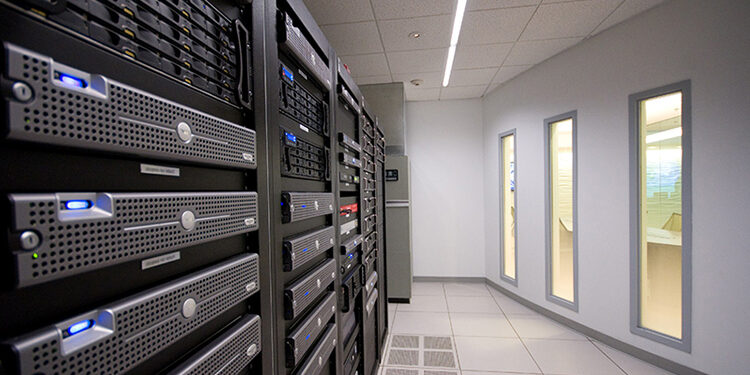Not matter what their particular sector, once a small business reaches a certain size it simply cannot do without a network server. In many ways, a small business server is the nerve centre of the organisation and that means that choosing the right one for you is absolutely crucial. Whether you are looking to invest in your first small business server or to upgrade your current hardware, the following information and guidance should be invaluable in informing your decision making.
The Server Basics
A good place to begin when discussing any important small business decision – especially in the technology field – is with the basics. It is only once these are understood, after all, that the more complex alternatives and choices can be properly assessed.
Firstly, it is crucial to understand that whilst a small server may look strikingly similar to a desktop PC, it performs a very different task. It runs a specialised operating system which, rather than controlling the desktop applications of one machine, is in charge of multi-user applications and other means of collaboration and integration across a network.
A server is designed to allow easier collaboration amongst the employees of a business and can do so in a number of ways. It can host a firm’s intranet, run enterprise resource planning software and act as the repository for the company’s data, documents and files. What’s more, the server also acts as a key line of defence against data loss or cyber-attack, by allowing a company to backup their files, data and systems.
With the basics covered therefore, it is time to move onto the main issue of choosing the right small business server solution. The sensible place to start when making that decision, is with some key questions regarding what your company really needs from a server.
The Questions to Ask
There are a great many server options to choose from and not all of them are suitable for all businesses. In order to ascertain the type of small business server you need therefore, there are a few key questions which you must ask about your business’s server needs.
Firstly, you must question exactly what the primary purpose of your server will be. Depending on your organisation, that purpose could be file sharing, data storage, email or perhaps remote access. Whatever it is however, it will certainly impact upon what type of server solution is best for you.
Practical issues too, such as questions of space in your premises and in your budget, must also be addressed at the outset when deciding upon the correct server solution. Failing to do so after all, can lead to significant issues both in the short and the longer term.
Once you have answers to these questions, you will be furnished with a good enough understanding of your business’s needs to make an informed choice from the many server options available to you.
The Small Business Server Alternatives
When it comes to physical servers that you can locate on your own premises, there are a few main alternatives and which one is right for you depends upon your answers to the above questions. To give a major example, however, you may need to make a choice between a file sharing server and a dedicated email server.
As their names suggest, the respective major functions of those alternatives are the storage and remote access of files, documents and data and the hosting of your company’s email system. Clearly then, if you have identified storage as your primary need, the former would be a better choice and if email was your priority, the latter represents the correct alternative.
There is also a decision to made however, as to whether a physical server is even the right way to go for your company. For some firms, a single server located on-site and handling all processes from storage and backup to email and collaboration can be the right choice, but there are other alternatives.
A company could for instance, choose to invest in a simple file sharing server for storage and remote access purposes and then trust their email needs to a cloud based solution. Alternatively, an increasingly popular choice with small businesses is to do away with physical servers entirely and opt for a wholly cloud based alternative.
The above should hopefully have given you a better understanding of the importance of a small business server and of how to choose the right one for you. If you want more in-depth advice tailored to your company specifically however, or further help in making your ultimate decision, all you need do is to contact Mustard IT today.













